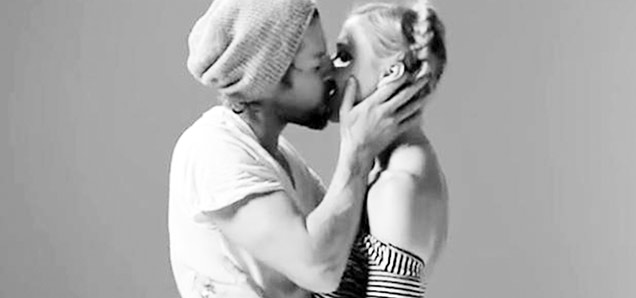ARTiculation: Artistic authenticity
 CREDIT: WREN
CREDIT: WRENThe �First Kiss� viral video that swept across the Internet turned out to be an advertising campaign by a Los Angeles clothing company.
In the few weeks, social media has turned one video into a viral sensation. “First Kiss” is a short film in which strangers who've never met before are paired up, put in front of a camera, and asked to make out. It would be like St. Paddy's Day at the bar, only there's no pre-kiss flirting, green beer, cheering crowd, and cellphone tucked into your cleavage. It's you and some person you've never met (who you may not even find particularly attractive), standing in front of a white screen, with a giant camera pointing at your face, and five people standing behind it staring at you, waiting.
It's a strange concept, but what began as awkward spin-the-bottle “I guess we're going to kiss now” moments slowly transformed into some intense intimacy as you watch them go from being completely unsure of themselves and the situation to melting into the experience and the other person. The video turns into a statement on human interaction and how tender and connected moments can be if you embrace them. So don't be scared to look people in the eye, hug someone goodbye, tell your friend she looks beautiful. It had people all over the world feeling more open and vulnerable.
And then we found out it was fake.
It turns out the video is actually an advertisement for clothing and the “strangers” who kissed were paid actors. My initial thought was exactly the same as everyone else's: what a load of shit. Overnight, the video went from being a soul-quenching piece of truth to being as infamous as a crack-smoking mayor. People are absolutely outraged.
It is true that it's a very (very) blatant display of how shallow seeded the advertising industry is, commercializing love to sell fabric. If we break it down, the video is saying exactly the same thing as nearly every other clothing ad. If you buy the clothes, you will become more attractive to a mate.
But I think it may be less about the morality of the ad (because even if you're mad about this, you probably still shop at Forever 21 or H&M), and more about how it made you feel like an idiot. People, in general, really don't like to feel like we've been fooled. And when we've posted something to Facebook, we damn well want to make sure that it makes us look like an intelligent, beautiful person, not a hopeless romantic sap. But if we can put aside our feeling of being duped, I believe there is something to take away from the whole debacle.
When we watch movies, we know they're not real, but we still laugh, cry and empathize with the characters and it doesn't feel morally questionable. Why is this different because it's been put out by a clothing company, not Paramount Pictures? Is it artistic integrity? There's something about being an artist that automatically makes you, in the public's eyes, an authentic person — you're always true to yourself because you know how to work a paintbrush (or a video camera). But part of being an artist is knowing how to appeal to people's emotionalism. The pieces you remember most from a gallery visit are likely those of an alarming scene of poverty, or a woman who reminded you of your grandmother. That's not an accident. Artists use their knowledge of what makes people feel human in order to get their message across. So does the video changing titles from “short film” to “advertisement” really make that big a difference?
Is the message lost because of its incongruent origin? I'm not convinced it is. Were you more moved by the joy of watching the video pre-scandal than you are by anger now that you know?
Editorial opinions or comments expressed in this online edition of Interrobang newspaper reflect the views of the writer and are not those of the Interrobang or the Fanshawe Student Union. The Interrobang is published weekly by the Fanshawe Student Union at 1001 Fanshawe College Blvd., P.O. Box 7005, London, Ontario, N5Y 5R6 and distributed through the Fanshawe College community. Letters to the editor are welcome. All letters are subject to editing and should be emailed. All letters must be accompanied by contact information. Letters can also be submitted online by clicking here.













